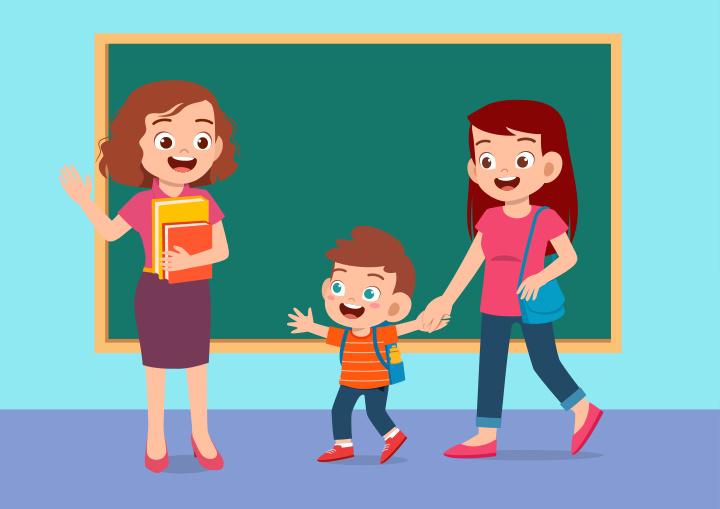Parental involvement plays a crucial role in shaping student behavior and academic success.
Parental involvement is a powerful force that shapes the character and future of students, fostering well-rounded individuals who are more likely to thrive academically and in life.
When parents actively engage in their child’s education and life, it can have profound effects on their behavior, attitude, and overall development.

Positive Role Modeling:
Parents who actively participate in their child’s life often serve as positive role models. Children observe their parents’ behavior, values, and attitudes, which can significantly influence their actions and choices.
A supportive and involved parent can instill discipline, responsibility, also strong moral values in their child.
Sense of Responsibility:
Parental involvement fosters a sense of responsibility in students. When parents show interest in their child’s education, attend parent-teacher conferences, and help with homework, students understand the importance of taking ownership of their academic responsibilities and behavior.
Improved Communication Skills:
Effective communication between parents and children is essential for building trust and understanding. When parents actively engage in discussions with their children about their school experiences, challenges, and goals, it enhances the child’s communication skills and encourages openness.
Motivation and Academic Performance:
Parental involvement has shown a link to increased motivation and academic performance in students. When children know their parents are interested and invested in their education, they become more motivated to work harder and succeed.
Behavioral Expectations:
Parents who set clear behavioral expectations for their children contribute to positive student behavior. Consistently reinforcing rules and boundaries improve students’ behavior, both in and out of the classroom.
Social and Emotional Development:
Parental involvement has a significant impact on a child’s social also emotional development. Positive parent-child interactions promote emotional well-being and build healthy relationships with peers and authority figures.
Sense of Belonging and Support:
When parents become involved in their children’s education, they often provide support, which fosters better self-esteem and a positive attitude towards school in students.
Reduction in Behavioral Problems:
Research suggests that students with involved parents are less likely to engage in behavioral problems or delinquent behavior. Parental guidance also supervision play a critical role in steering children away from negative influences.
Conclusion
The effects of parental involvement on student behavior are profound and multifaceted. Active parents serve as positive role models, instilling responsibility and also supporting their children’s academic and emotional growth.
Effective communication, clear behavioral expectations, also a sense of belonging contribute to positive student behavior and academic success.
Collaboration between educators and parents fosters an environment for children to thrive, becoming responsible, respectful, and successful individuals. 온라인카지노
bahçe makineleri, motorlu testere, motorlu tırpan, çim biçme makinası, budama makası, akülü testere, benzinli testere, ms 170, ms 250,bahçe el aletleri satışını yapan firmamız kredi kartına taksit fırsatları ile şimdi sizlerle.